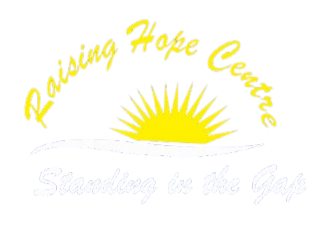Child Protection Program
Child Protection Program
Supporting Unaccompanied Children
The Child Protection Program at Raising Hope Centre is designed to safeguard vulnerable children, with a particular focus on unaccompanied minors who have been separated from their families due to conflict, displacement, or other crises. The program aims to ensure that these children are protected from harm, provided with the necessary care, and given the opportunity to thrive in a safe environment.
1. Identification and Registration
- Tracking and Documentation: Early identification and proper registration of unaccompanied children are critical to ensuring they receive the care and support they need. The program works closely with local authorities and child welfare agencies to identify children who are unaccompanied and ensure accurate documentation for their protection and future reunification.
- Assessment of Needs: Each child’s unique needs, including emotional, medical, and educational requirements, are assessed to provide tailored support. This helps prioritize intervention based on the child’s immediate safety, health, and well-being.
2. Safe and Secure Temporary Care
- Emergency Shelters and Care Centers: The program provides safe, temporary housing for unaccompanied children in well-equipped shelters, where they can receive emotional support, food, medical care, and education. These shelters are staffed by trained caregivers who ensure a nurturing environment while maintaining the child’s safety and privacy.
- Psychosocial Support: Unaccompanied children are often traumatized by the loss of their families and the events that led to their separation. Trained counselors provide psychological support to help children cope with trauma, grief, and anxiety, facilitating their emotional healing and well-being.
3. Reunification and Family Tracing
- Family Tracing and Reunification: A central focus of the program is to reunite unaccompanied children with their families when possible. Partnering with national and international organizations, the program actively conducts family tracing and works to reunite children with their families in a safe and supportive manner. In cases where reunification is not possible, alternative long-term care solutions are explored.
- Alternative Care Arrangements: When reunification is not possible, the program ensures that children are placed in alternative care arrangements, such as foster care, or referred to long-term institutions that provide continued support and protection.
4. Education and Skill Development
- Access to Education: The program ensures that unaccompanied children have access to education, either through formal schooling or specialized educational programs that cater to their unique needs. This helps them regain a sense of normalcy and stability, providing them with skills for their future.
- Life Skills Training: In addition to formal education, children are provided with life skills training, including literacy, numeracy, and other essential skills that promote personal development, independence, and social integration.

5. Legal and Advocacy Support
- Child Protection Laws and Advocacy: Raising Hope Centre advocates for the rights of unaccompanied children in line with national and international child protection laws. This includes advocating for better legal frameworks and services to protect the rights of vulnerable children and ensuring that their voices are heard.
- Legal Assistance: The program also provides legal support to children and their caregivers, ensuring that children’s rights are respected, and they receive the legal protection they are entitled to under both national and international law.
6. Community Engagement and Awareness
- Raising Awareness: The program engages with communities to raise awareness about the risks faced by unaccompanied children, particularly in situations of displacement, and educates families about child protection practices. This helps reduce the risk of child exploitation and abuse and fosters a protective environment.
- Empowering Caregivers and Community Leaders: Training community leaders, caregivers, and local organizations is vital in strengthening child protection efforts. The program offers training on how to identify signs of abuse, report incidents, and provide immediate support to children in need.
7. Monitoring and Reporting
- Ongoing Monitoring: The program includes continuous monitoring and follow-up to ensure that children’s welfare is upheld. This includes regular checks on children’s emotional and physical health, their integration into communities, and their educational progress.
- Data Collection and Reporting: Comprehensive data collection helps track progress, report on the status of individual children, and assess the overall effectiveness of the program. It also ensures transparency and accountability in the handling of cases.
Conclusion
Raising Hope Centre’s Child Protection Program for unaccompanied children focuses on safeguarding their well-being, ensuring they receive the care they need, and working toward family reunification or providing alternative care solutions. The program is committed to addressing the specific needs of these children and empowering them to heal, grow, and succeed in a secure and supportive environment. Through education, legal support, psychosocial care, and community engagement, Raising Hope Centre strives to give unaccompanied children the opportunity to regain their childhood and build a brighter future.

